Network Recorders NVRs
Network video recorders come in different forms. A desktop computer or laptop can be converted into an NVR using software. For someone who wants to install their own security camera system, this is the easiest and cheapest way. Some cameras come bundled with free professional recording software. This lets users convert any computer which meets the minimum software requirements into a power surveillance monitoring tool with features similar to what large companies use. For businesses and advanced users, this is not recommended. An NVR is a DVR for IP security cameras.
Network Video Recorders by Brands
Which is better NVR or DVR?
When considering a security camera system, you will ultimately decide between choosing an NVR or DVR. Both work similarly, with the same purpose, and function as a part of the central hub for your overall security apparatus, but fundamentally do their specific role differently. That particular role is to process, record, and save video footage from cameras in order for direct or later viewing. Read our blog post to make the right decision: NVR or DVR: Which is Better? Difference, Pros and Cons
What is a Network Video Recorder (NVR)?
A Network Video Recorder (NVR) is a specialized device or software used to manage and store video footage from IP (Internet Protocol) cameras and other networked video devices. Unlike traditional DVRs (Digital Video Recorders) that work with analog cameras, NVRs are designed to work with digital IP cameras, which transmit video and audio data over a computer network.
Read our blog post: What is a Network Video Recorder (NVR)?
-
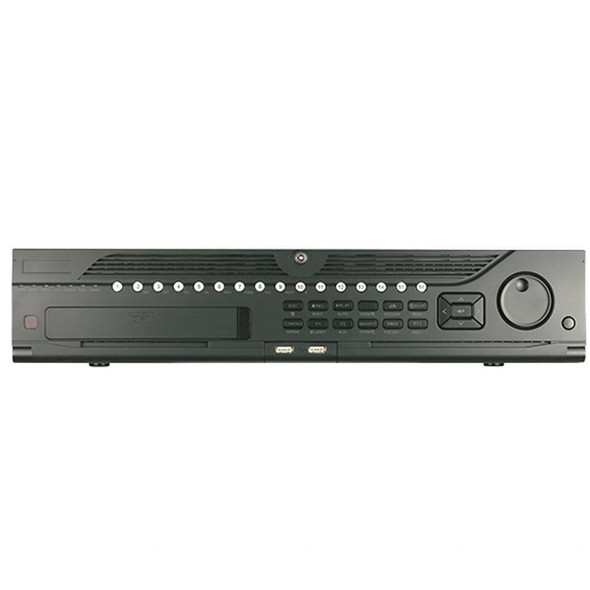
LTS LTN8964-R 64 Channel Enterprise H.265 4K Network Video Recorder, No HDD included
Brand: LTS Security
Part Number: LTN8964-R$1,899.85- Compression : H.265, H.264,
- Pre-Installed Storage : No HDD included
- Video Output : 1x HDMI
- Max. Recording Resolution : 12MP (4K)
- Hard Drive Ports : 8 SATA Ports
- Max. Storage Capacity : 48 TB Storage Capacity
- Color : Black
$1,899.85 -

LTS LTN8964-8 64 Channel H.265 4K Network Video Recorder, Platinum Enterprise Level, HDD Options Available
Brand: LTS Security
Part Number: LTN8964-8$1,589.85- Compression : H.265, H.264, H.265 Plus, H.264 Plus,
- Pre-Installed Storage : No HDD included
- Max. Recording Resolution : 12MP (4K)
- Hard Drive Ports : 8 SATA Ports
- Max. Storage Capacity : 80 TB Storage Capacity
- Color : Black
$1,589.85 -
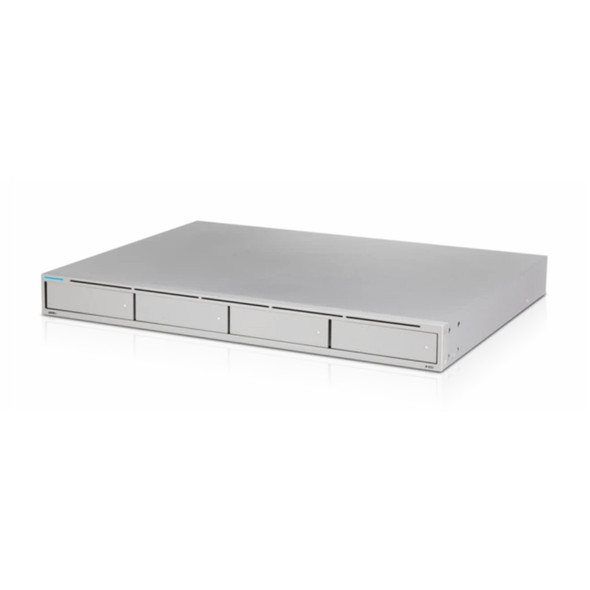
Ubiquiti UNVR Enterprise UniFi Protect Network Video Recorder
Brand: Ubiquiti
Part Number: UNVR$343.33- Pre-Installed Storage : No HDD included
- Max. Recording Resolution : 8MP (4K)
- Hard Drive Ports : 4 SATA Ports
- Max. Storage Capacity : 32 GB Storage Capacity
- Material : SGCC
$343.33 -
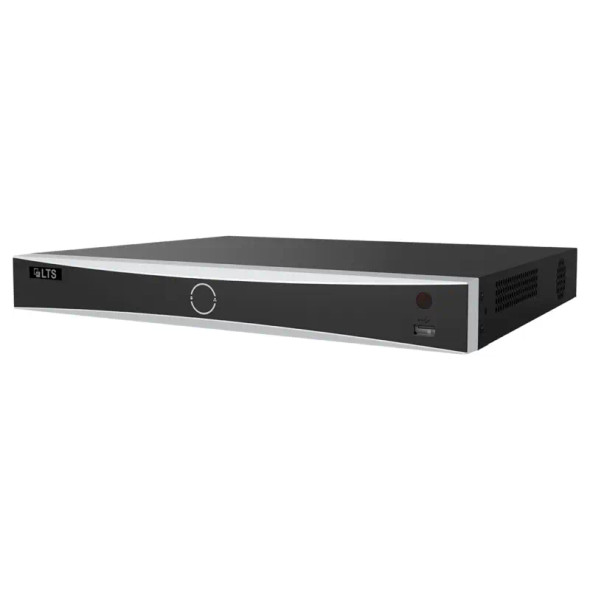
LTS LTN8716D-P16N Platinum 16 Channel 4K NVR with 16 Built-in PoE Ports, Up to 12MP Recording, No Hard Drive Included
Brand: LTS Security
Part Number: LTN8716D-P16N$433.56- Compression : H.265, H.265 Plus, H.264, H.264 Plus,
- Max. FPS and Resolution : 30fps at 12MP (4K)
- Pre-Installed Storage : No HDD included
- Video Output : 1x HDMI 1x VGA
- Max. Recording Resolution : 12MP (4K)
- Hard Drive Ports : 2 SATA Ports
- Max. Storage Capacity : 20 TB Storage Capacity
- Color : Black
- Environmental : Indoor
- Number of PoE Ports : 16 PoE Ports
$433.56 -
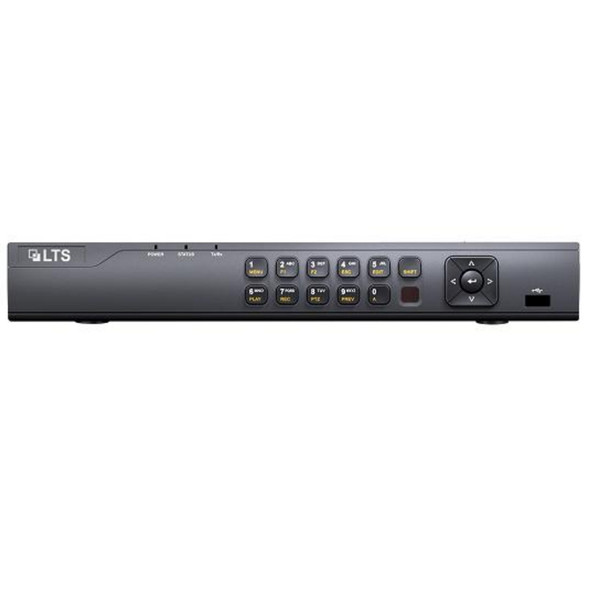
LTS LTN8704Q-P4N 4 Channel 4K Network Video Recorder, 4 PoE Ports, H.265+, No HDD included
Brand: LTS Security
Part Number: LTN8704Q-P4N$198.47- Compression : H.265 Plus, H.265, H.264, H.264 Plus,
- Pre-Installed Storage : No HDD included
- Video Output : 1x HDMI 1x VGA
- Max. Recording Resolution : 8MP (4K)
- Hard Drive Ports : 1 SATA Port
- Max. Storage Capacity : 8 TB Storage Capacity
- Number of PoE Ports : 4 PoE Ports
$198.47 -

LTS LTN8932-P16N 32 Channel 8K NVR with 16 Built-in PoE Ports, Up to the 32MP Recording, 4 SATA Ports, 14TB each
Brand: LTS Security
Part Number: LTN8932-P16N$837.00- Compression : H.264, H.264 Plus, H.265, H.265 Plus,
- Max. FPS and Resolution : 30fps at 7680 x 4320
- Pre-Installed Storage : No HDD included
- Max. Recording Resolution : 32MP
- Hard Drive Ports : 4 SATA Ports
- Max. Storage Capacity : 56 TB Storage Capacity
- Color : Black
- Environmental : Indoor
- Number of PoE Ports : 16 PoE Ports
$837.00 -
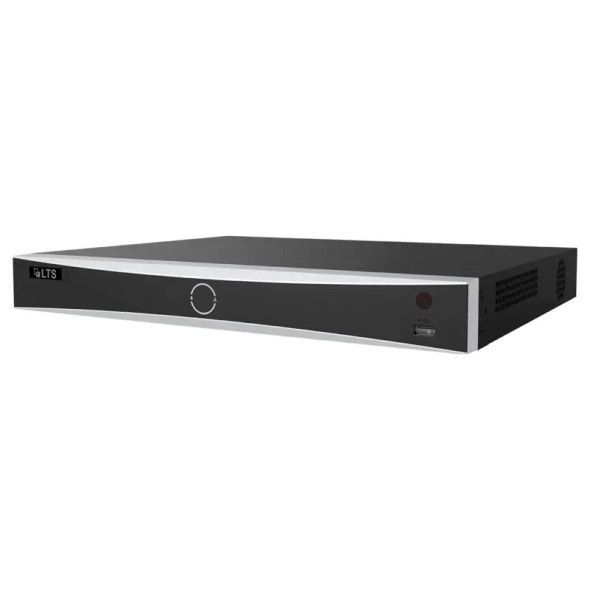
LTS LTN8708D-P8N 8 Channel 12MP 4K NVR with 8 PoE Ports, MD 2.0 Human and Vehicle Detection, Platinum
Brand: LTS Security
Part Number: LTN8708D-P8N$369.00- Compression : H.265, H.265 Plus, H.264, H.264 Plus, MJPEG,
- Max. FPS and Resolution : 30fps at 3840 x 2160 (4K)
- Pre-Installed Storage : No HDD included
- Video Output : 1x VGA 1x HDMI
- Max. Recording Resolution : 12MP (4K)
- Hard Drive Ports : 2 SATA Ports
- Max. Storage Capacity : 20 TB Storage Capacity
- Color : Black
- Environmental : Indoor
- Number of PoE Ports : 8 PoE Ports
$369.00 -

LTS LTN8608-P8N 8-Channel NVR with 8 Built-in PoE Ports, No Hard Drive Included, Platinum 86 Series, 32MP
Brand: LTS Security
Part Number: LTN8608-P8N$417.74- Compression : H.264, H.264 Plus, H.265, H.265 Plus,
- Max. FPS and Resolution : 30fps at 7680 x 4320
- Pre-Installed Storage : No HDD included
- Video Output : 1x CVBS 1x HDMI 1x VGA
- Max. Recording Resolution : 32MP
- Hard Drive Ports : 2 SATA Ports
- Max. Storage Capacity : 28 TB Storage Capacity
- Color : Black
- Environmental : Indoor
- Number of PoE Ports : 8 PoE Ports
$417.74 -

AXIS S3008 8 Channel Compact Network Video Recorder with Integrated Switch, 2TB - 02105-004
Brand: AXIS
Part Number: 02105-004$732.10- Compression : H.265, H.264,
- Pre-Installed Storage : 2 TB
- Max. Recording Resolution : 4K
- Max. Storage Capacity : 8 TB Storage Capacity
- Color : Black
$732.10 -
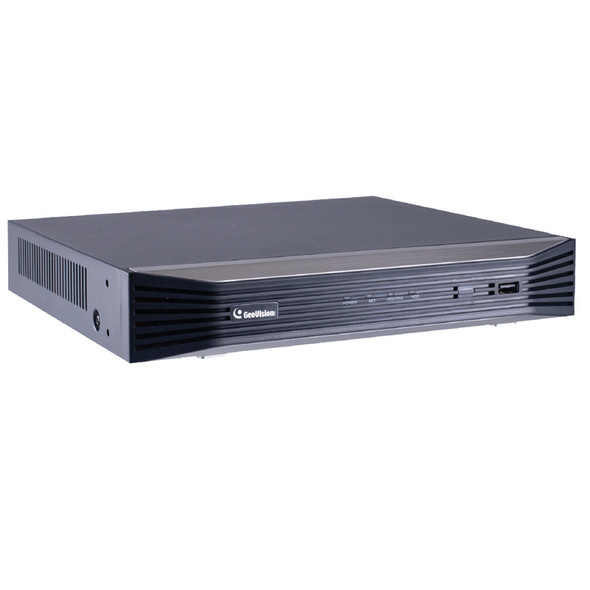
Geovision GV-SNVR0412 4 Channel 4K Network Video Recorder, No HDD included
Brand: Geovision
Part Number: GV-SNVR0412$171.88- Pre-Installed Storage : No HDD included
- Video Output : 1x VGA 1x HDMI
- Max. Recording Resolution : 8MP (4K)
- Hard Drive Ports : 1 SATA Port
- Max. Storage Capacity : 10 TB Storage Capacity
- Number of PoE Ports : 4 PoE Ports
$171.88 -
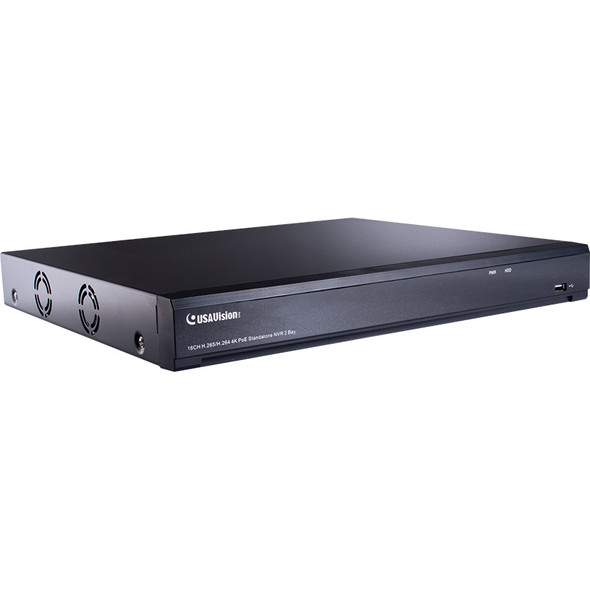
Geovision UA-SNVR1620-P 16 Channel 4K 2-Bay Network Video Recorder, No HDD included
Brand: Geovision
Part Number: UA-SNVR1620-P$394.13- Compression : H.264, H.265,
- Pre-Installed Storage : No HDD included
- Video Output : 1x VGA
- Max. Recording Resolution : 8MP (4K)
- Hard Drive Ports : 2 SATA Ports
- Max. Storage Capacity : 20 TB Storage Capacity
- Number of PoE Ports : 16 PoE Ports
$394.13 -
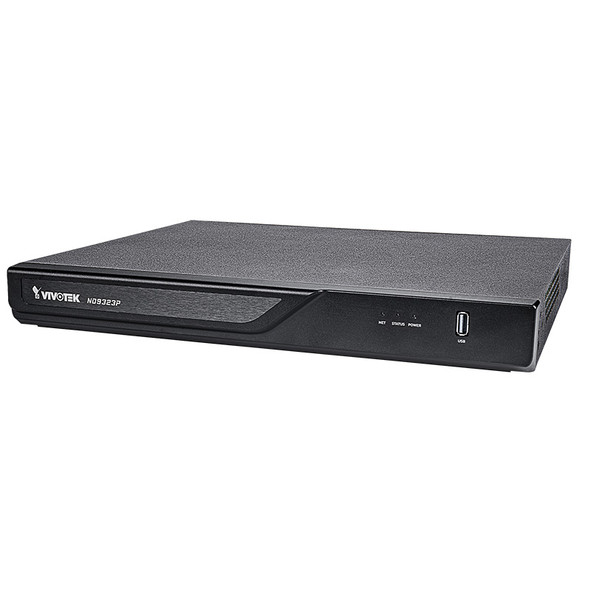
Vivotek ND9323P 8-channel Network Video Recorder, Embedded PoE, H.265, No HDD
Brand: Vivotek
Part Number: ND9323P$702.00$650.00- Pre-Installed Storage : No HDD included
- Max. Recording Resolution : 8MP (4K)
$702.00$650.00 -
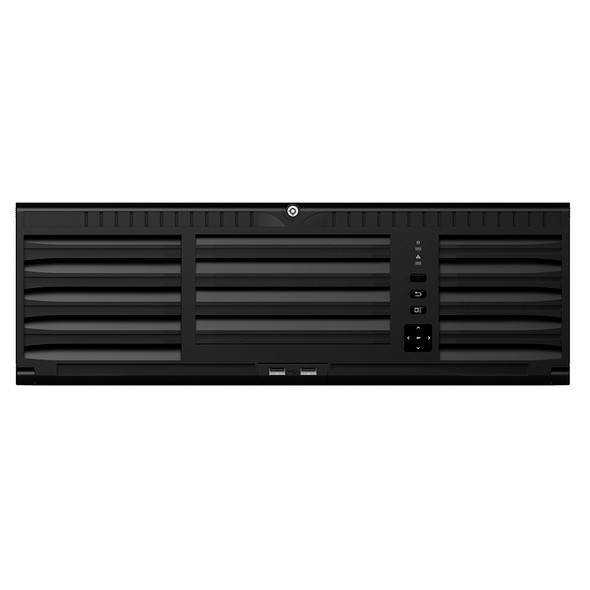
LTS LTN07128-R16 128 Channel 4K Enterprise Network Video Recorder
Brand: LTS Security
Part Number: LTN07128-R16$4,499.85- Compression : MPEG4, MJPEG, H.264, H.264 Plus, H.265, H.265 Plus,
- Pre-Installed Storage : No HDD included
- Video Output : 1x VGA 2x HDMI
- Max. Recording Resolution : 12MP (4K)
- Hard Drive Ports : 16 SATA Ports
- Max. Storage Capacity : 128 TB Storage Capacity
- Number of PoE Ports : 4 PoE Ports
$4,499.85 -
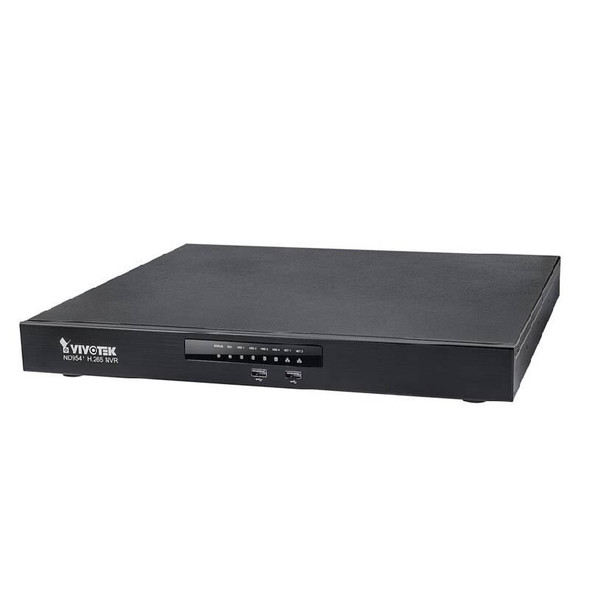
Vivotek ND9541 32 Channel H.265 Network Video Recorder
Brand: Vivotek
Part Number: ND9541$1,404.00$993.03- Compression : H.265, H.264,
- Pre-Installed Storage : No HDD included
- Video Output : 1x HDMI 1x VGA
- Max. Recording Resolution : 5MP (3K) 8MP (4K)
- Hard Drive Ports : 4 SATA Ports
- Max. Storage Capacity : 24 TB Storage Capacity
$1,404.00$993.03 -
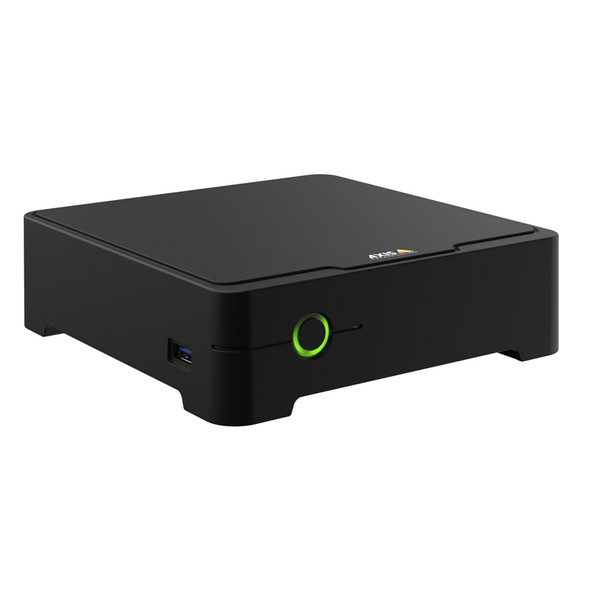
AXIS S3008 8 Channel Compact Network Video Recorder with Integrated Switch, 4TB - 02046-004
Brand: AXIS
Part Number: 02046-004$937.03- Pre-Installed Storage : 4 TB
- Max. Recording Resolution : 4K
$937.03 -
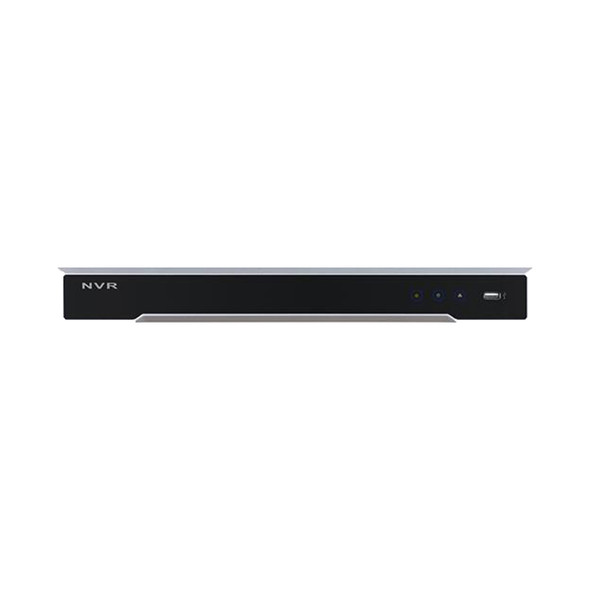
Hikvision DS-7608NI-I2/8P 8-Channel H.265+ 4K Network Video Recorder - No HDD Installed
Brand: Hikvision
Part Number: DS-7608NI-I2/8P$408.64- Compression : MJPEG, H.265, H.264, H.264 Plus,
- Pre-Installed Storage : No HDD included
- Video Output : 1x HDMI 1x VGA
- Max. Recording Resolution : 12MP (4K)
- Hard Drive Ports : 2 SATA Ports
- Max. Storage Capacity : 12 TB Storage Capacity
$408.64 -

Dahua N52B3P4 16 Channel 4K ePoE Network Video Recorder with 4TB HDD included
Brand: Dahua
Part Number: N52B3P4$1,051.18- Pre-Installed Storage : 4 TB
- Max. Recording Resolution : 12MP (4K)
$1,051.18
NVR Network Video Recorder for IP Security Cameras
Benefits of Using Network Video Recorders NVR
H 264 Network Digital Video Recorder
NVR Recorder for IP Cameras




Network Recorders NVRs Blog Pages
- How to install an NVR (Network Video Recorder) with IP Security Cameras
- How to Reboot Your Recorder Remotely
- Do all recorders work with all cameras?
- How To Reset Your Recorders/Cameras Password Securely
- How to Reset Your LTS Recorders Password with a Secure Code
- NVR and Motion Detection Recording
- NVR/DVR Storage Calculator
- How To Reset LTS Platinum Series DVR/NVR Password
- Which is Better NVR or DVR? What's the Difference?
- How to Solve Dahua and Dahua OEM DVR Vulnerability
